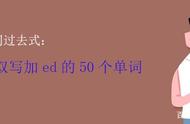

9.How did you like it? 你觉得它怎么样?(P3)
How do/did you like……? 意为“你觉得……怎么样?”,用来询问对方的观点或看法,相当What do you think of……? eg: How do you like your new job? = _____ _____ _____ _____ your new job?
10.Did you go shopping? 你们去购物了吗?(P3)
go shopping意为“去购物;去买东西”,同义短语为do some shopping.
eg: I usually go shopping on Sundays.我通常星期天去购物。
拓展:“go doing”形式表示“去做某事”,常用于表达从事某一体育活动或休闲活动。
go skating 去滑冰go hiking 去远足go sightseeing 去观光go fishing 去钓鱼go swimming 去游泳go boating 去划船
11.I went to a friend‟s farm in the countryside with my family.我和家人一起去了乡下一个朋友的农场。(P3)
a friend’s farm是名词所有格形式。
一般情况下,表示“有生命的人或物”的名词后面加‟s,表示所属关系。
eg:The red bike is Alice‟s. 那辆红色的自行车是爱丽斯的。
拓展:名词所有格的构成:
1)单数名词词尾加‟s ,复数名词词尾没有s,也要加‟s
the girl ‘s pen女孩的钢笔women’s shoes女鞋on Children’s Day
2)复数名词以s结尾的只加‟
the students’ reading room学生阅览室Teachers’ Day教师节
3)如果两个名词并列,并且分别有‟s,则表示“分别有”;只后一个名词有一个‟s,则表示“共有”:
John’s and Kate’s rooms. 约翰和凯特(各自)的房间。Lily and Lucy’s father. 莉莉和露西的爸爸(同一个爸爸)。
4)表示无生命的名词一般以...of...构成短语,表示所有关系。
a map of China一幅中国地图the name of the story那个故事的名字
12.Still no one seemed to be bored. (即使这样)仍然没有人看起来无聊。(P3)
1)seem意为“好像;似乎;看来”。eg:Everything seems easy.一切似乎很容易。
拓展 a. seem adj. “看起来……”。You seem happy today.你今天看起来很高兴。
b. seem to do sth. “似乎,好像做某事”。I seem to have a cold.我似乎感冒了。=It seems that I have a cold.
c. It seems/seemed 从句“看起来好像…;似乎…”。It seems that no one believes you.看起来好像没有人相信














